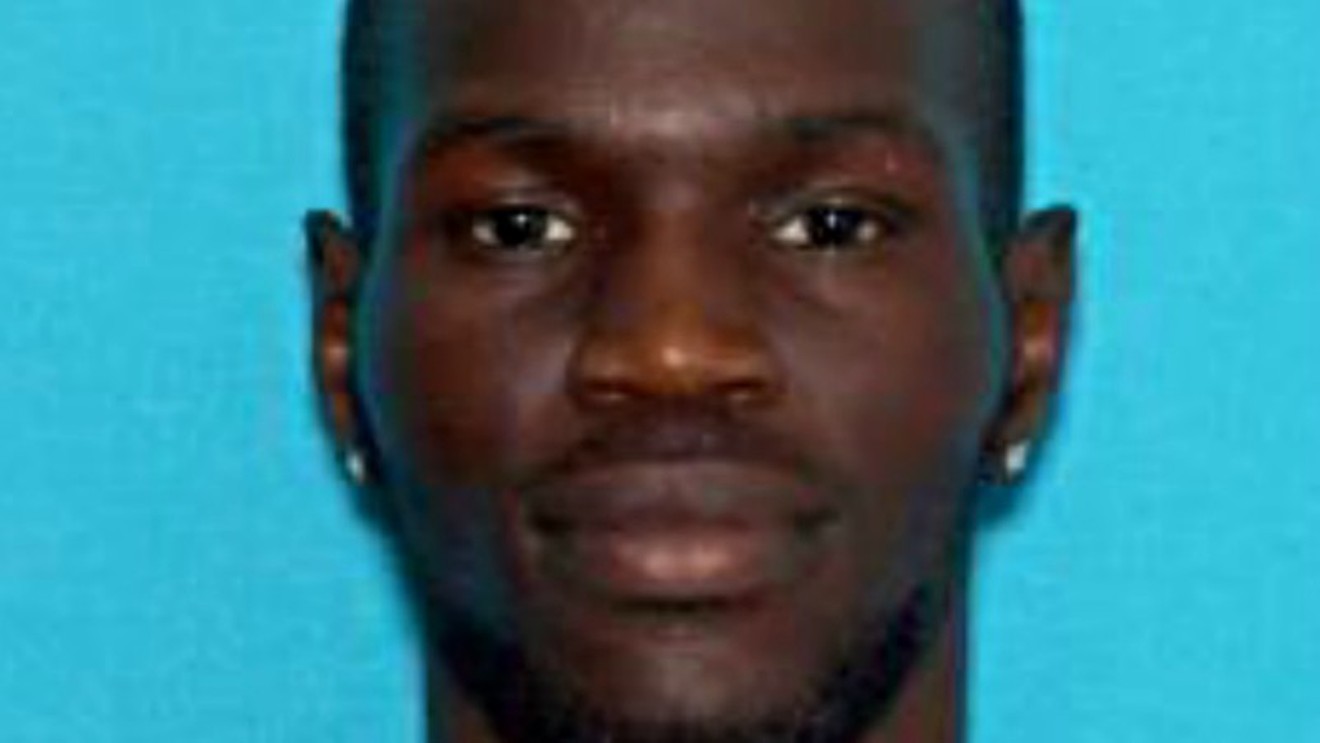Let's start by stating the obvious. Lowate, a 25-year-old who Anglicized his given first name, Andro, is of African descent; his family hails from Sudan. The place where he suffered his fatal wound — the 1300 block alley between Yosemite and Xenia — is in an area that even residents would be unlikely to describe as hip. And the particulars of the crime, which involved an altercation with unknown assailants that ended with Lowate being shot in the face, is, unfortunately, an all-too-common example of urban violence.
Then there's the question of timing. The Denver Police Department sent out a Crime Stoppers alert about the homicide mere hours before the early September 28 slaying of security guard Lucardio Kroener on the 1400 block of Market Street in lower downtown — a trendy setting filled with popular nightclubs (Kroener worked security for Larimer Square) that had been rocked by a triple shooting just twelve days earlier.
Because the proximity of Market Street incidents raised fears about another crime increase in LoDo, local news outlets, including this one, focused on the Kroener killing, causing what happened to Lowate to be overshadowed. The Denver Post, Patch, 9News and Fox31 published news briefs that essentially restated the Crime Stoppers release, and that's where the coverage ended.

The 7-Eleven at 11th and Yosemite where Andrew Lowate met his brother shortly before the fatal altercation.
Google Maps
Friends and loved ones say he didn't smoke or drink and was always ready to lend a helping hand to anyone who needed one. In other words, he was an exemplary person and a great role model for everyone in the sprawling and lively Sudanese community in Denver. Its members are now rallying around the Lowate family, which is understandably devastated by the loss and incredibly frustrated that there have been no arrests or suspects identified in the case.
So, too, is Sonny Jackson, spokesman for the Denver Police Department. He stresses that "it's still an open investigation. We're working on it, and if anybody has additional details, we'd love to get them. We'd love to get additional, corroborating information so we can move forward."
The details shared by the DPD to date are sparse. At about 8:50 p.m. on the 26th, a "physical fight" took place in the aforementioned alley before someone described only as a black male in his twenties shot Lowate. Immediately thereafter, the man, along with two or three black males and a female in his company, fled the location on foot. Lowate was subsequently transported to a nearby hospital, but he didn't survive.
Intimates of the Lowate family say Andrew was in the company of his older brother, whom he'd met at a 7-Eleven at 11th and Yosemite, a couple of blocks away. But it's unclear what led to the encounter with the group in the alley or why the situation spun out of control.
When asked if members of the Denver police force get frustrated when cases like Lowate's quickly slip out of view, spokesman Jackson stresses, "We do crime alerts on things like this because we want to get the public's help and the public's assistance — and we do it because we want to solve it. We want to solve all of these."
In Jackson's words, "We often can't determine why one case resonates with the public and another one doesn't. We know crimes that happen in certain areas draw more attention than others. But all of these cases are equally important to us, including when individuals who are homeless are injured, hurt or killed" — a theme of Westword staffer Chris Walker's recent feature article about a triple homicide near the interchange of South Broadway and Interstate 25, as well as comments Jackson shared with us about another overlooked crime, the hit-and-run death of Raymond Davies on the 2700 block of West Evans in August. Davies's mother tells us Raymond wasn't homeless, but the perception that he was may have contributed to even less news coverage than Lowate's murder received.
"No crime outweighs another," Jackson says. "They're all equally important. And in this case, we want to get the word out. There's a real purpose to these bulletins. We want people to take note of them and the media to push them out even further. The media has a big voice, and hopefully we're able to utilize that to further this investigation."
That's appropriate — because Andrew Lowate didn't deserve to be forgotten.













